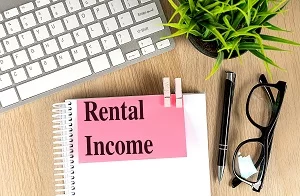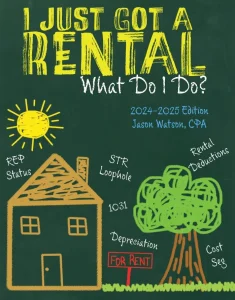
Business Advisory Services
Everything you need to help you launch your new business entity from business entity selection to multiple-entity business structures.
Hey - Our site just had a makeover and we are sorting through the hiccups!
Hey - Our site just had a makeover and we are sorting through the hiccups!

Everything you need to help you launch your new business entity from business entity selection to multiple-entity business structures.

Designed for rental property owners where WCG CPAs & Advisors supports you as your real estate CPA.

Everything you need from tax return preparation for your small business to your rental to your corporation is here.

WCG’s primary objective is to help you to feel comfortable about engaging with us
Posted Saturday, June 21, 2025
Table Of Contents
 Rental properties can be great investments and offer some ways to shelter your taxable income through rental deductions. However, there are several tax related issues during the purchase, management, and sale of your rental property which can ultimately affect your rental income tax rate.
Rental properties can be great investments and offer some ways to shelter your taxable income through rental deductions. However, there are several tax related issues during the purchase, management, and sale of your rental property which can ultimately affect your rental income tax rate.
The proper handling, coordination, and reporting of taxable events such as closing costs, repairs versus improvements, depreciation, 1031 exchanges (and even reverse 1031 exchanges) seemingly innocent HOA dues and mileage can improve your tax consequence. While incorrect tax reporting can start the slow brewing of future problems.
Most rental property owners would define themselves as investors. Yeah, sure, why not? However, would you call Warren Buffett an investor or a business owner? We would call him a business owner who happens to make investments with his business into other businesses. Perhaps we are splitting hairs and getting caught up in semantics, but at the same time, we look at you and your rental properties as a business. As such, your business needs the care and guidance of business consultants, and that’s where WCG excels. We help you take the emotions out of rental property management and have a detached, business-oriented perspective to help you build wealth by maximizing your rental deductions.
For our real estate investors and rental property owners, our tax return preparation fees for Schedule E on 1040s start at $800. For Forms 8825 on S Corp (1120S) and Partnerships (1065) tax returns, our fees start at $1,200. Please visit our business tax return preparation page for more information on real estate holding companies and partnerships.
There are two considerations- rental property setup, and then rental property tax return preparation.
If you are new to WCG CPAs & Advisors, or if you have recently acquired a rental property, here are typical set up fees-
| Rental Setup, Existing Rental Prior to 2025 (unless nutty asset listing) | $125 ea |
| Rental Setup, New Rental Purchased in 2025 (yay!) | $200 ea |
| Rental Setup, New Short Term Rental Purchased in 2025 | $250 ea |
| Add On: Cost Seg Setup, New Rental in 2025 | $150 |
| Add On: Rental Acquired in a 2025 1031 Exchange | $250 |
| Add On: Rental Acquired before 2025 in a 1031 Exchange | $350 |
| Add On: Commercial, 4-Plex, Apartments, Several Assets | varies |
Ok, neat. Should we run through some examples?
You are new to WCG (yay) and you purchased a rental property in 2024 that is a short-term rental and you did a cost segregation study as well. Your setup fees would be $250 + $150 = $400.
You are new to WCG (double yay), and you purchased a rental property in 2024 through a 1031 like-kind exchange and you did a cost seg as well. Your setup fees would be $125 + $150 + $250 = $525.
You are new to WCG (more yay) and you have 2 existing rentals with 1 as an STR, and you acquired one of the rentals with a 1031 like kind exchange a few years ago. Your setup fees would be $125 x 2 + $350 = $600
You are new to WCG (we sense a theme!) and you have 3 existing rentals with 2 as STRs, and you did 1 cost segregation study today on a rental property that has been in service since 2022 (and therefore you also need a Form 3115 Change in Accounting Method, see below). Your setup fee would be $125 x 3 + $625= $1,000.
Yes, we can offer some discounts or economies of scale.
 Why Have Setup Fees?
Why Have Setup Fees?Why do we have setup fees at all? We must ensure your prior depreciation is correct (especially if acquired with a 1031 exchange), all assets are correctly identified with original cost basis including acquisition costs, and loan amortization is properly recorded. We see a lot of junk out there which is not big deal until you want to sell the rental property, and minimize your tax pain.
Why do we charge extra for short-term rental setups? They are more intensive because there are more questions that need to be answered from us (and from you!), and we have to comb through furnishings and other boot up expenditures to ensure they are properly handled.
Why would I need a 3115 with a cost segregation study? If your rental property has already been in service and tax returns have been filed, then we need to request permission from the IRS to basically accelerate your depreciation on your current tax return. Alternatively we could amend your prior tax returns which is messy and expensive. Also, there is some tax arbitrage potentially if your income is higher today than it was when you first purchased your rental property. Lots to discuss here!
Why do we charge extra for a rental property acquired in a prior year 1031 like-kind exchange? We need to confirm that the previous tax professional computed the exchange correctly since once we prepare the tax return, we own the data including prior data.
Here are typical rental property tax prep fees that might be added to your individual tax return (Schedule E reported on Form 1040) or partnership tax return (Form 8825 reported on Form 1065).
Please keep in mind that each rental property is a small business with varying complexity. Operating expenses, improvements, home office deduction including travel, automobile expenses, paying your children, allocated expenses among several rentals among other nuances are business-like considerations and add to the comprehensiveness that WCG provides with rental tax return preparation (learn about our Rental Expert Pod as well).
| Rental Tax Prep, Prepared Financials (Rental Bookkeeping) | $100 ea |
| Rental Tax Prep, Clean DIY Records (The SRO Template) | $150 ea |
| Rental Tax Prep, Complex or Messy Records (disguised disorganization) | $200 ea |
| Add On: Existing Rental converting to STR | $75 |
| Add On: Streamlined State Tax Return (in addition to your resident state) | $125 to $200 |
| Add On: Complex State Tax Return (see below for what makes complex, complex) | $250 to $400 |
| Add On: Cost Seg Setup + 3115 / 481(a) Calc, Existing Rental Prior to 2025 | $625 |
| Add On: Short-Term Rental Activities (non-investor patrol) | $75 |
| Add On: Rental Property Sale | $250 |
| Add On: 1031 Like-Kind Exchange and New Setup | $450 |
| Add On: Complex 1031 (2:1, 1:2) and New Setup(s) | $750 |
You purchased a rental property in 2024 that is a short-term rental and you did a cost segregation study as well. Your recurring tax prep fees would be $75 since the first rental is included in our base fee.
You have 2 existing rentals with 1 as an STR, and you acquired one of the rentals with a 1031 like kind exchange a few years ago. Your books and records are impeccable. Your recurring tax prep fees would be $100 + $75.
You have 3 existing rentals with 2 as STRs. Your rental property records are incredibly tight and you use our SRO template, and therefore your recurring tax prep fees would be $100 + $100 + $75 + $75 = $350.
You are a returning client to WCG (thank you) and you had a long-term rental from 3 years ago and you recently converted it to a short-term rental in 2024, and you also performed a cost segregation study so you need a Form 3115 Change in Accounting Method). Your tax prep fees would be $75 + $625= $700.
There are a million different examples, and Yes, some of this is based on the judgement such as clean records versus messy records (no, not you, of course not, right?). Please keep in mind that our base tax return preparation fee includes rental #1. Also, we will offer discounts for several rentals such as 6 or more.
You live in Colorado and have a rental property in California. You will need to file a California non-resident tax return even if the rental loses money. You have an income-generating asset in their state. Also, please consider that a taxing jurisdiction has the right to inspect your books and records to ensure your loss is truly a loss.
Keep in mind that some states and cities consider rental properties to be business ventures like any other, and more are focusing on short-term rentals as well. What makes things worse is that some taxing jurisdictions will impose an income tax based on gross rental receipts regardless if the activity is profitable. Yuck.
Here is some other complexity-
While we have your attention or perhaps even your interest, please read our State Problems With Your Rental Property section from our book “I Just Got A Rental, What Do I Do?”
We expand on some of the state issues below as well.
Did you have more questions about your unique situation? Want to get going on rental property tax return preparation but would like to talk to a human first? Let’s chat!
The tax advisors, business consultants and rental property experts at WCG CPAs & Advisors are not salespeople; we are not putting lipstick on a pig expecting you to love it. Our job remains being professionally detached, giving you information and letting you decide within our ethical guidelines and your risk profiles.
We see far too many crazy schemes and half-baked ideas from attorneys and wealth managers. In some cases, they are good ideas. In most cases, all the entities, layering and mixed ownership is only the illusion of precision. As Chris Rock says, just because you can drive your car with your feet doesn’t make it a good idea. In other words, let’s not automatically convert “you can” into “you must.”
Let’s chat so you can be smart about it.
We typically schedule a 20-minute complimentary quick chat with one of our Partners or our amazing Senior Tax Professionals to determine if we are a good fit for each other, and how an engagement with our team looks. Tax returns only? Business advisory? Tax strategy and planning? Rental property support?

Taxes can be tricky. Chat with a WCG human now and get questions answered.
 Here are some additional considerations during rental property tax return preparation.
Here are some additional considerations during rental property tax return preparation.
How does all this black magic work? With a cost segregation report, or some say a cost segregation study, all the sticks, bricks and stuff inside are figuratively torn down and put into different piles. Some piles (5-year or 7-year) are eligible for accelerated depreciation, another pile would be a 15-year pile which varies a bit, and the remaining pile will revert to the 27.5- or 39.0-year typical residential or nonresidential commercial use depreciation.
Technically, and with full-on geek-speak, cost segregation separates property elements that are “dedicated, decorative or removable” from those that are “necessary and ordinary for operation and maintenance of the building.” These piles are called asset classes, and they are maintained separately within your property’s depreciation schedule.
From there, and with the help of bonus depreciation and in some cases Section 179 expensing, you compress the multiple years of depreciation into one. Yay!
If your average guest stay is 7 days or less and you materially participate in the activity (500 hours, 100 hours and more than anyone else, or substantially all hours) you likely qualify for the short-term rental loophole. Given the intricacies with STRs, and additional time and diligence spent, we commonly have an add-on fee for these types of rental properties. We are short-term rental experts.
If you have a short-term rental similar to above, but provide substantial services then your rental activities are reported on Schedule C… read that again… Schedule C of your individual tax return and subjected to self-employment taxes. Yuck! What the heck are substantial services? According to IRS Publication 527, substantial services are-
If you provide substantial services that are primarily for your tenant’s convenience, such as regular cleaning, changing linen, or maid service, you report your rental income and expenses on Schedule C. Use Form 1065, U.S. Return of Partnership Income, if your rental activity is a partnership (including a partnership with your spouse unless it is a qualified joint venture). Substantial services don’t include the furnishing of heat and light, cleaning of public areas, trash collection, etc. For more information, see Pub. 334, Tax Guide for Small Business. Also, you may have to pay self-employment tax on your rental income using Schedule SE (Form 1040 or 1040-SR), Self-Employment Tax.
Think hotel or hunting lodge.
Let’s quickly review the simplified basics of real estate professional status–
If you meet these two, you are what the Internal Revenue Code refers to as a qualifying taxpayer, or what the industry calls a real estate professional. But you are not done! The final step is to demonstrate material participation as a real estate professional in each of your rental activities.
We are also REPS experts. We expand on this below.
You generally group rental activities together to reduce the burden required to meet the material participation tests (the big three are 500 hours, 100 hours and more than anyone else, or substantially all hours). 3 standalone rentals might require 1,500 hours. Group them together, and you only need 500 hours, for example, across all three. Here are the common rental activities to group together-
There are all kinds of rules and things to consider. Please check out our excerpts from our rental book on the 1.469-4 general grouping election and the 1.469-9(g) grouping election for real estate professional status.
When you sell your rental property, including a 1031 or 721 exchange (don’t forget about Delaware Statutory Trusts), there will likely be an add-on fee of $250 for a straight-up sale or $500 to $750 for a like-kind exchange. This is where the rubber hits the road in terms of capital gains, and we need to spend the extra time to ensure a) your purchase price is correctly being considered including acquisition costs, b) improvements are accounted for and c) selling expenses and other things are factored in.
 Rental Property Tax Deductions
Rental Property Tax DeductionsA lot of rental property owners miss out on tax deductions for not knowing how to position themselves correctly. For example, deducting travel expenses to and from your rental. Or the optimized way to deduct cell phones, mileage, and home offices. What about repairs and improvements? What about de minimis safe harbor from IRS Notice 2015-82 which states that items $2,500 or less are considered immediate rental deductions and do not have to be depreciated? How about the Small Taxpayer Safe Harbor for repairs that exceed $2,500? There are two other rental property safe harbors- small taxpayer and routine maintenance.
Can you deduct rental property expenses during renovations or when the property is vacant? Generally Yes, but there are some things you need to be aware of.
WCG CPAs & Advisors are real estate CPAs and we can help maximize your tax deductions. Check out our rental property tax prep template.
We encourage short-term rentals to be owned by partnerships (i.e., a multi-member LLC). Why?
First, the historical audit rate of partnerships (Form 1065) is 0.4%. Super low compared to individual tax returns (Form 1040) which might be 4% to 12% depending on your income levels. Why does this matter? When you have a big cost segregation depreciation plus your big startup expenses such as furniture and supplies, and you then have a big tax deduction against your big W-2 income because your passive losses are no longer limited with your big material participation, it raises some eyebrows.
Second, with a partnership tax return, we can mechanically show your capital contribution (at-risk money) including recourse loan debt. Why does this matter? Let’s say you invest $250,000 into a new business, and that business loses money. The IRS sees your “partner basis,” the $250,000, within your 1040 tax return, and suddenly the $100,000 first-year loss doesn’t seem so out-of-whack. A short-term rental is certainly a business activity; sure, you might not have a profit right away, but you will make money someday (otherwise you wouldn’t do it, right?).
Please visit our business entity tax return preparation page for fees associated with partnerships owning rentals. There are some other good things, but there are some pitfalls too.
WCG specializes in real estate investors and as such we provide accounting services for rental properties. Rental properties are a business like any other, and the proper tracking of revenue and more importantly the associated expenses are essential. The bookends to the varying service levels are your common single-family rental (SFR) home and that large commercial property with several tenants. That’s the X axis. The Y axis becomes tax return complexity based on number of owners, number of activities (rentals) or both. There are many considerations; please click on the button below to learn more about our rental property accounting services.
 Let’s say you have a ski condo in Aspen and you use it from time to time, and you also rent it out to others. If your personal days exceed 14 days or 10% of the days it was rented to others at fair market rates, then you have to prorate your rental deductions and expenses based on rental use percentage.
Let’s say you have a ski condo in Aspen and you use it from time to time, and you also rent it out to others. If your personal days exceed 14 days or 10% of the days it was rented to others at fair market rates, then you have to prorate your rental deductions and expenses based on rental use percentage.
Rental Use % = Days Rented / (Days Rented + Days Used Personally)
Ok, so you use the rental use percentage to limit your rental deductions. Now what? Can you create a loss? Perhaps. If the rental property activity triggers vacation rules, then No. Vacation rules apply when 1) the rental was rented for less than 140 days during the year, or 2) personal use days exceeds 10% of the rented days. Prorated rental deductions and expenses are limited to income (in other words you cannot have a rental loss). Here is a sample Vacation Home Worksheet from our tax software. Don’t laugh, but here is H&R Block’s AirBNB Guide which is very good at explaining all this.
If vacation rules do not apply, then you could have a net rental loss. Could? Yes, could. There is ordering rules where mortgage interest and property taxes are used first to offset rental income, and operating expenses and rental depreciation are applied next. If operating expenses and rental depreciation create a net rental loss, then that loss is carried forward.
We have to briefly mention the Bolton Method or what is also called the Tax Court Method (which WCG CPAs & Advisors uses). Before TCJA it was quite simple; if you itemized, then Bolton / Court Method was better. If you used the standard deduction, the IRS Method would be better. With TCJA, you must run both scenarios. Bolton Method is basically rental days divided by days in the year, whereas the IRS Method is rental days divided by number of days used for any purpose. The Bolton Method usually results in a lower percentage, and therefore a lower allocation of mortgage interest and property taxes to the rental activity.
The Masters Rule stems from Internal Revenue Code Section 280A(g). It is a unique rule in which homeowners who rent out their property for 14 days or less in a tax year are not considered to be engaged in the activity for profit, and therefore do not have to claim the rental income. This property could still be considered a second home where mortgage interest and property taxes are still deductible. Yeah baby! They call it the Masters Rule from those who rent out their homes for the Masters Tournament in Augusta, Georgia.
Otherwise vacation rules do not apply, but your rental deductions and expenses are limited based on rental use percentage. The good news is that you can still have a net rental loss if those prorated rental deductions exceed the rental income.
It is easy and common to overlook rental property and real estate investment nuances at the state level. Here are some random considerations-
Although your rental property has a tax loss, you are usually required to file a state tax return. Why? You have an income-producing asset in their state (taxing jurisdiction), and they have the right to inspect your books and records to ensure your reported tax obligation is as you say. Wow! We geeked out there.
 Some States Do Not Recognize Accelerated Depreciation
Some States Do Not Recognize Accelerated DepreciationCalifornia, for example, does not recognize bonus depreciation and has different limits for Section 179 expensing. This is another reason to prepare and file state tax returns for your rental property although it might have a federal tax loss. In other words, you could very easily have a tax loss on your Form 1040 individual tax return but have taxable income on your state tax return. Don’t shoot the messenger.
There are three sneaky situations here. We say sneaky since rental property owners get used to tax losses, and boom, one day they have a tax profit. Here are the situations
First things first- live in Ohio, rental in California. How this situation generally goes is like this- Ohio will tax you on your global income including the rental property profits in Washington. From there, it will give you a tax credit for taxes paid to other states for taxable income earned in other states. In our example, Washington does not have an income tax, so your rental property profits in Washington are purely taxed by Ohio. Yes, the income is earned in a tax-free state. We got it, but your resident state is going to take a bit of the apple.
Next, our second example- let’s say you live in Ohio, and the rental property is in lovely San Diego, California banging out a nice profit. You might pay taxes in California as a non-resident earning taxable income in their jurisdiction (yeah, dorky accounting geek-speak), and Ohio will also tax you. For now, you are being taxed twice on the same dollar. However, Ohio will give you a credit up to what Ohio would have taxed you for the taxes paid to California.
This credit might be less than the taxes paid to California since it is based on Ohio’s rate. Yuck, right? Wait! We say “might” twice for a reason- keep reading.
Let’s move along to the third example which is quite simple now knowing what you know. You have a rental property in a taxed state like California, but you live in Washington which is a tax-free state. California will tax the rental property profits earned there, and you will likely file a non-resident tax return should you exceed the filing requirements (or if you want your property management withholdings refunded- see below).
California does not conform to Real Estate Professional Status (REPS), and as such while your rental losses might be deductible on your federal tax return, they might be limited on your California state tax return. Yuck.
The federal tax code has a separate graduated tax system for long-term capital gains, and it is either 0%, 15% or 20% plus the possible net investment income tax of 3.8%. We call this a preferential tax rate. This sounds wonderful. However, most states do not have a preferential tax rate for long-term capital gains.
Who wants to pick on California some more? Excellent. If you own a rental property in California and you are not a California resident, your property manager is legally obligated to do what the accounting industry calls “backup withholding.” Here is a blurb from their website–
California law requires withholding of tax by persons having the control, receipt, custody, disposal, or payment of items of income, commonly termed “withhold at source.” (Title 18 California Code of Regulations (CCR) section 18662-1(a)(1)). As a property manager providing services to nonresident property owners, including but not limited to renting, leasing, or collecting rent or lease payments on behalf of the nonresident owner, you are considered the withholding agent for California withholding purposes. As a withholding agent, you are required to withhold 7% on rent or lease payments to nonresidents when the total payments of California source income, excluding property management fees, exceed $1,500 for the calendar year.
This section should be called California state return matters. We use California for a couple of reasons- first, they have aggressive tax law and second, a lot of states call it progressive tax law and adopt many of California’s initiatives. Could you be considered doing business in California with your non-California rental property? Yes! Here is a blurb directly and very much self-servingly from California’s Franchise Tax Board 3556 LLC MEO–
Paul is a California resident and a member of a Nevada LLC. The Nevada LLC owns property in Nevada. The LLC hires a Nevada management company to collect rents and provide maintenance. Paul has the right to hire and fire the management company. He occasionally has telephone discussions from California with the management company in Nevada regarding the property. He is ultimately responsible for the property and oversees the management company. Paul conducts business in California on behalf of the LLC. The LLC must file Form 568.
All these state issues come from our State Problems With Your Rental Property KB article from our rental book.
 I just got a rental, what do I do? Purchasing a rental property is certainly challenging, but operating one to build wealth and find tax efficiency is equally challenging. This is our second book. Our first book, Taxpayer’s Comprehensive Guide to LLCs and S Corps, was first published in 2014 and was well-received by small business owners and tax professionals, so we thought a book on rental properties and real estate investments would be equally helpful. So, here we are with our second iteration, or the 2025 edition. We update it frequently throughout the year (last update was October 6, 2025).
I just got a rental, what do I do? Purchasing a rental property is certainly challenging, but operating one to build wealth and find tax efficiency is equally challenging. This is our second book. Our first book, Taxpayer’s Comprehensive Guide to LLCs and S Corps, was first published in 2014 and was well-received by small business owners and tax professionals, so we thought a book on rental properties and real estate investments would be equally helpful. So, here we are with our second iteration, or the 2025 edition. We update it frequently throughout the year (last update was October 6, 2025).
Our rental property book starts with entity structures and moves into asset management such as acquisition, cost segregation, rental safe harbors, repairs versus improvements, accelerated depreciation, partial asset disposition, and 1031 like-kind exchange. From there we discuss various rental considerations like passive activity losses, short-term rental loophole, real estate professional status, and material participation including what time counts, and what time doesn’t count.
Finally, the good stuff! Rental property tax deductions such as travel, meals, automobiles, interest tracing, home office and common expenses. Fun!
It is available in paperback for $19.95 from Amazon and as an eBook for Kindle for 15.95. Our book is also available for purchase as a PDF from ClickBank for $12.95.
WCG has a team of real estate CPAs ready to assist you with your rental property and real estate investments. Very few tax professionals and CPA firms specialize in real estate to provide you solid consultation, tax planning including tax reduction strategies, and tax return preparation. We are experts in-
This book is written with the general rental property in mind. Too many resources tell you the general rule but don’t bother to back it up with Internal Revenue Code, Treasury Regulations and Tax Court cases. Our book lays it all out, explains the madness, adds some humor and various conundrums. Example? Water heaters and hot tubs- crazy stuff to consider.
Enjoy! And please send us all comments, hang-ups and static. This book is as much yours as it is ours, except the tiny royalty part- that’s ours. Stop by and we’ll buy you a beer with the pennies.
If you buy our 480-page book and think that we didn’t help you understand rental property tax laws, let us know. We never want you to feel like you wasted your money. If you are ready to add some insightful reading into your day, click on one of the preferred formats. Amazon is processed by Amazon, and the PDF is safely processed by ClickBank who will email you the PDF as an attachment.
 |
 |
 |
| $19.95 | $15.95 | $12.95 |
One of the most frequent questions from taxpayers is regarding rental property depreciation. Should you do it or no? Well, the IRS says it doesn’t matter because of a little rule called allowed versus allowable. This little nugget basically says if depreciation was allowable, then it’s considered taken (deducted). In other words, even if you do not take depreciate as a rental deduction, the IRS will assume you did. Yuck. What can be done if you haven’t deducted rental property depreciation in the past?
We can usually true up under a Section 481(a) adjustment when combined with the more complicated Form 3115 (Change in Accounting Methods). Either way, we can help.
Do you depreciate your short-term rental? Perhaps.
Here are some common questions about rental property repairs (rental deductions) and improvements (rental depreciation).
Deducting expenses and capitalizing improvements must be handled properly. The first step is to determine if you can use one of the three rental property safe harbors–
If none of those work for you, the next step is to determine if it truly is an improvement and not a repair. There is an acronym that we and others use, either BAR or BRA… take your pick!
Stapling a bunch of bras on the ceiling of a bar is probably not an improvement in the eyes of the IRS, but certainly something to giggle at.
Kidding aside, well some of it anyway, our Chapter 10 Repairs and Improvements from our rental property book goes into all this. We also discuss some common repair conundrums such as water heaters, HVAC units and furnaces, roofs, and hot tubs. Hot tubs, really? Yes, really, and it is a bit more complicated than you think.
Rental properties are lousy tax vehicles for two big reasons. First, if you make too much money (adjusted gross income over $100,000 for married taxpayers), then your rental losses are slowly capped from $25,000 at $100,000 to $0 at $150,000. In other words, if your rental loses $20,000, but your income is $150,000, your rental loss deduction is zippo. Those losses do carry forward to future years, however. There are exceptions for Real Estate Professionals as defined by the IRS and those who have short-term rentals (average guest stay of 7 days or less + material participation).
Second — and this is a bite you in the butt thing — most rental losses are created by depreciation. However, when you sell the property, you must add back depreciation into your gains calculations. This little surprise is known as depreciation recapture. Therefore, your rental deductions created in part by rental depreciation all these years were truly an IOU to the IRS upon sale.
All is not lost; you can perform a 1031 like-kind exchange, or you can do a reverse 1031 which is where you buy the next property first and then less the relinquished property. This is tricky, but we can guide you. 721 exchanges or UPREIT also exist too, and they are becoming more popular.
So why do people want to own a whole gaggle of rental properties if they stink at lowering your tax burden. Simple! Rental properties build wealth, and at the end of the day, wealth building is what your primary objective should be. If you can save some taxes along the way, then winner, winner, chicken dinner. But the prize is truly wealth building.
To qualify as a real estate professional, an individual must dedicate the majority of their time to real property businesses. These businesses include:
In addition, more than half of the personal services performed in all businesses during the year must be performed in real estate businesses. So, if you have a garden variety W2 job working 2000 hours a year, you need to spend 2001 hours in real estate activities. Wait! There’s more. Second, your hours worked in the real estate activity must be more than 750 hours. Steep thresholds.
 If you own multiple rental properties each will be considered a separate entity and you must satisfy the above requirements on each property independently unless an election is made to treat all those interests as a single activity. This election is simply a statement that is attached to your tax return. And under Revenue Procedure 2010-13, you can make the election retroactively (typically requires amending a tax return just for the election).
If you own multiple rental properties each will be considered a separate entity and you must satisfy the above requirements on each property independently unless an election is made to treat all those interests as a single activity. This election is simply a statement that is attached to your tax return. And under Revenue Procedure 2010-13, you can make the election retroactively (typically requires amending a tax return just for the election).
Once you qualify as a real estate professional, you must materially participate in the operation of your rental property business. This is where it gets tricky, and this is where most rental property owners get into trouble. If you cannot prove material participation in your rental activities, you will be subjected to passive loss limitations (currently $25,000).
Realtors and agents beware! Just because you spend 3,000 hours hauling around buyers doesn’t mean you are a slam dunk for the real estate professional designation. Real estate agent DOES NOT automatically qualify you. The material participation rules must be met, and the 750 hours dedicated to your rental activity is outside your work as a real estate agent, realtor, broker, etc.
Also, and this is commonly missed by tax professionals, by being a Real Estate Professional, you can avoid the net investment income tax (NIIT). As such, if you have taxable rental income (profits), you might want to avoid this pesky 3.8% additional tax.
For more information directly related to the IRS definition of real estate professional and the tests for material participation please click on the button for a our updated blog post including tax court cases-

See how real estate professional status can help you deduct your rental activity losses and avoid the 3.8% net investment income tax.
Rental properties can offer excellent retirement and cash flow options, but the tax planning needs to be done ahead of time and not later. Our team at WCG CPAs & Advisors look forward to working with you!
How do rental income tax rules interact with rental property and taxes?
Rental properties can shelter taxable income through rental deductions, but passive activity loss limitations might impact the tax deduction. Short-term rental loophole and real estate professional status are two big ways to get around PAL limitations.
Which activities most impact the taxation of rental income?
Proper handling of startup expenses versus acquisition costs, repairs versus improvements and the associated rental safe harbors, accelerated depreciation and common operating costs can have big impacts.
For rental property and taxes, why are rental property setup fees associated with tax return preparation sometimes necessary?
To verify prior depreciation, confirm basis and acquisition costs, and ensure loan amortization is correct—issues that matter most when you sell. WCG is always thinking of how to exit an activity whether it is a rental or a business- we want to have a good foundation now while memories are fresh.
What tool helps keep rental property and taxes organized?
Use WCG’s Simplified Rental Ops (SRO) worksheet, have a good time tracker like REPSLog and perhaps a mileage tracker like MileIQ.
During renovations or vacancy, how are rental property and taxes handled?
Generally, expenses can still be deductible, but specific rules and timing considerations apply. Provided the rental property remains in service (your intent remains to have the property rented in the future), you should be okay with most expenses.
What is cost segregation and how does it affect rental income tax?
A cost segregation study separates building components into asset classes so more items qualify for accelerated depreciation (either bonus depreciation or Section 179 expensing, or both).

With cost segregation plus bonus depreciation (and sometimes Section 179), you can compress multiple years of depreciation into one. Sounds like we just answered this above.
What is the “allowed vs. allowable” rule for rental depreciation?
If depreciation was allowable, the IRS treats it as taken—even if you didn’t—often requiring a Section 481(a) adjustment via Form 3115 to true up. This only bites you upon sale, but truing it up before the year in which you sell is a good idea and might actually create some tax arbitrage by timing certain events with high income years.
Repairs vs. improvements: how do they affect rental income tax?
Start with safe harbors (De Minimis, Small Taxpayer, Routine Maintenance); if not applicable, apply the BAR/BRA tests for Betterment, Adaptation, or Restoration.
How does the short-term rental loophole work for rental property and taxes?
If average guest stay is 7 days or less and you materially participate, you likely qualify. What does this mean for you? STR loophole bypasses the passive activity loss (PAL) limitations.
For a vacation rental or Airbnb, when do substantial services change the taxation of rental income?
Providing substantial services such as daily linen services, concierge services, airport transportation, etc. which are hotel-like in nature moves the activity from Schedule E to Schedule C and subjects income to self-employment taxes. However, just having a short-term rental, and even one that qualifies for the loophole, does not move the activity to Schedule C.
What are the Bolton Method and IRS Method for a vacation rental (airbnb) allocation?
Bolton uses rental days divided by days in the year; the IRS Method uses rental days divided by days used for any purpose. This can materially alter the ability to deduct real estate property taxes and mortgage interest.
What is the Masters Rule and how does it affect rental income tax on a vacation rental?
Renting a home for 14 days or less means the income isn’t claimed, while mortgage interest and property taxes can still be deductible.
What is real estate professional status and how can it change rental income tax treatment?
It requires >50% of your personal service time in real property businesses and at least 750 hours, plus material participation in each rental activity (unless grouped under 1.469-9(g)). Just like short-term rental loophole, REPS allows you to bypass passive activity loss limitations (and NIT).
How does grouping help with real estate professional status and the taxation of rental income?
You can group activities to meet material participation tests across the grouped activities. Makes the hours less burdensome. Number of rentals x 500 hours, for example, can be a high bar. 500 hours for all rental properties is much easier. There are problems with this election, however.
How do state filings interact with rental income tax when there’s a loss?
You usually must file where the property is located even with a loss. It mostly depends on the gross rental income received.
How do states treat bonus depreciation and accelerated depreciation for rental property and taxes?
Several states decouple from federal rules, so you could have a federal loss and a state-taxable profit when using bonus depreciation. At times, Section 179 can come to the rescue (for example, in New York state, no bonus, but huge Section 179 availability).
How does California treat real estate professional status for rental income tax?
California doesn’t conform to REPS, so losses deductible federally may be limited. Yeah, this stinks.
What is California property-manager backup withholding and how does it affect taxation of rental income?
Property managers must withhold 7% on California-source rent to nonresidents over $1,500 in a year.
Can multi-state ownership cause double taxation of rental income tax?
Yes—resident states may credit taxes paid elsewhere, but the credit may be partial or unavailable. State income apportionment, and whether to file or not file a tax return where your rental property is located, can be tricky stuff.
What does “doing business in California” mean for rental property and taxes?
Activities conducted from California on behalf of an out-of-state LLC can trigger California filing. In California’s self-serving way, if you operate an LLC in Nevada, for example, from inside California’s state borders, they will “impute” the annual $800 LLC fee as if the LLC was operating in California. Dang!
Why might partnerships be preferred for short-term rentals and rental income tax reporting?
Partnerships (Form 1065) have a historically low audit rate and clearly track partner basis and recourse debt. Allows for some cloaking and risk reduction.
What planning steps best optimize rental property and taxes before year-end?
Plan ahead for safe harbors, cost segregation, depreciation choices, grouping elections, and state issues. Sounds easy, right?
I heard that rental properties make good tax deductions?
Maybe. The primary purpose of buying a rental property is to build wealth (or feed a lifestyle choice later when you convert a rental property to second home). If we can manage a big tax deduction from a big cost segregation report with big accelerated depreciation, then those big tax savings should be deployed to build more wealth. Saving taxes is nice, sure, but building wealth is the primary objective.
Table Of Contents

Tax planning season is here! Let's schedule a time to review tax reduction strategies and generate a mock tax return.

Tired of maintaining your own books? Seems like a chore to offload?
Do you have questions about your rental property tax return? Curious about complexity and fees, and how it all works? We are real estate and rental property experts. Let’s chat!
The tax advisors, business consultants and rental property experts at WCG CPAs & Advisors are not salespeople; we are not putting lipstick on a pig expecting you to love it. Our job remains being professionally detached, giving you information and letting you decide within our ethical guidelines and your risk profiles.
We see far too many crazy schemes and half-baked ideas from attorneys and wealth managers. In some cases, they are good ideas. In most cases, all the entities, layering and mixed ownership is only the illusion of precision. As Chris Rock says, just because you can drive your car with your feet doesn’t make it a good idea. In other words, let’s not automatically convert “you can” into “you must.”
Let’s chat so you can be smart about it.
We typically schedule a 20-minute complimentary quick chat with one of our Partners or our amazing Senior Tax Professionals to determine if we are a good fit for each other, and how an engagement with our team looks. Tax returns only? Business advisory? Tax strategy and planning? Rental property support?

Everything you need to help you launch your new business entity from business entity selection to multiple-entity business structures.

Designed for rental property owners where WCG CPAs & Advisors supports you as your real estate CPA.

Everything you need from tax return preparation for your small business to your rental to your corporation is here.

WCG’s primary objective is to help you to feel comfortable about engaging with us

